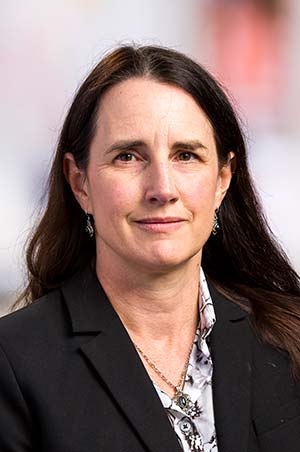Marie Bleakley, MD, PhD, MMSC
Professor
Translational Science and Therapeutics Division, Fred Hutch
Director, Cellular Therapy and Transplantation for Pediatric Leukemia
Fred Hutch
Gerdin Family Endowed Chair for Leukemia Research
Fred Hutch
Dr. Marie Bleakley is a pediatric hematologist-oncologist who specializes in hematopoietic (blood-forming) stem cell transplantation and T cell immunotherapy for patients with leukemia and other blood cancers. Her research goal is to develop novel therapies that can optimize the cancer-fighting power of immune T cells while reducing a potentially dangerous side effect known as graft-vs.-host disease, or GVHD. Dr. Bleakley and her team have already pioneered one novel transplantation approach that selectively removes donor T cells that might cause GVHD. They are also genetically engineering T cell therapies that target unique markers to kill a patient’s cancer cells even more effectively.
Other Appointments & Affiliations
Affiliate Investigator, Clinical Research Division, Fred HutchAffiliate Investigator
Clinical Research Division, Fred Hutch
Attending Physician
Fred Hutch
Professor, Pediatrics
University of Washington School of Medicine
Attending Physician
Seattle Children's Hospital
Education
PhD, The University of Sydney, 2010
Fellowship, Pediatric Hematology-Oncology, Fred Hutchinson Cancer Center and Seattle Children’s Hospital, 2002-2005
Fellowship, Pediatric Oncology, The Children’s Hospital at Westmead, 1999-2001
MMSC, Clinical Epidemiology, The University of Newcastle, 2000
Residency, Pediatrics, The Children’s Hospital at Westmead, 1996-1999
Bachelor of Medicine & Surgery/MD, Flinders University of South Australia, 1994
Clinical Expertise
Dr. Bleakley specializes in hematopoietic stem cell transplantation (HCT) and T cell immunotherapy for the treatment of leukemia relapse in children. She is developing ways to optimize the use of T cells in transplantation for patients with leukemia and other blood cancers and in targeted T-cell therapies for patients with a variety of cancer diagnoses.
Laboratory Studies
T cells act by targeting specific proteins (antigens) on diseased cells, using highly specialized molecular complexes, called T cell receptors (TCRs). Dr. Bleakley is advancing one strategy that manipulates donor T cell responses to a group of antigens called minor histocompatibility (H) antigens. She established a new technique for isolating and expanding minor H antigen-specific T cells, which is now used for discovering novel hematopoietic-restricted minor H antigens that are expressed on leukemia and can be exploited as targets for vaccination and adoptive immunotherapy. She and her laboratory have already identified and characterized several novel human minor H antigens.
Dr. Bleakley’s team is conducting a clinical trial using minor H antigen specific T cells to treat recurrent leukemia after HCT. For this first clinical trial, she chose as a target the ‘gold standard’ highly hematopoietic-restricted minor H antigen, HA-1. This T cell immunotherapy was developed in her lab, where the team isolated HA-1-specific T cells, sequenced their TCRs, cloned several HA-1 TCRs into lentiviral vectors and evaluated the function of HA-1 TCR-engineered CD4+ and CD8+ T cells.
T cells can have potent therapeutic effects against leukemia and other cancers. However, they can also cause complications after HCT, including graft-versus-host disease. A strategy to prevent GVHD involves selectively removing GVHD-promoting T cells from hematopoietic stem cell grafts. Dr. Bleakley is leading an ongoing set of clinical trials that was informed by laboratory studies, which showed that ‘naïve T cells’ cause severe GVHD while another subset of allogeneic donor T cells (known as ‘memory’ T cells) can be purified and administered to produce immunity to infections and tumors, with little or no GVHD.
